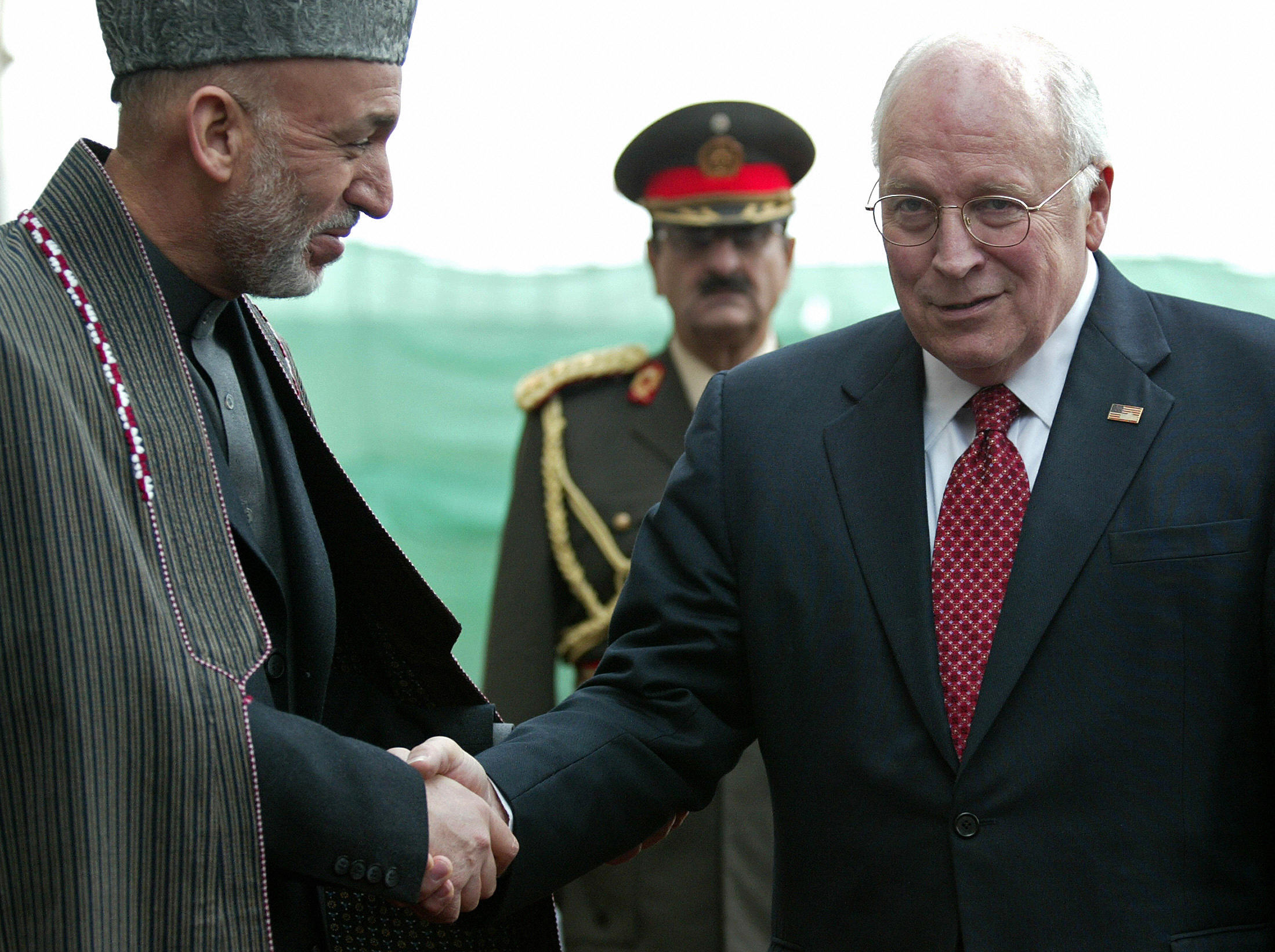Former Vice President Dick Cheney Dies at 84
Dick Cheney, the 46th Vice President of the United States, passed away at age 84, sparking tributes across the political spectrum. Some notable figures, however, have yet to comment.
Cheney rose to national prominence as Vice President under George W. Bush, becoming known for expanding the power of the office and leaving a lasting mark on U.S. policy. Following his death on November 3, 2025, his family and former colleagues honored his legacy.
Surrounded by Family
According to CNN, Cheney died from complications related to pneumonia and cardiac and vascular disease. He passed away surrounded by his wife of 61 years, Lynne, and their daughters, Liz and Mary.
For his loved ones, Cheney was more than a political figure. “Dick Cheney was a great and good man who taught his children and grandchildren to love our country, and to live lives of courage, honor, love, kindness, and fly fishing,” the family said.
Tributes Pour In
Political leaders quickly shared their condolences. Former President Joe Biden acknowledged Cheney’s long career in government and praised his commitment to conservative values and family. Vice President Kamala Harris also highlighted Cheney’s dedication as a public servant across multiple administrations.
Former President Bill Clinton reflected on Cheney’s devotion to service, calling him a man driven by a deep belief in serving the country despite political disagreements.
The George W. Bush Presidential Center released a statement honoring Cheney’s integrity, recalling how Bush personally selected him as a running mate in 2000 due to his experience, judgment, and loyalty. The center praised his steady guidance during national crises and his unwavering focus on American freedom and security.

Afghan President Hamid Karzai meets US Vice President Dick Cheney at the Presidential Palace in Kabul on February 27, 2007 | Source: Getty Images
Silence from Some Leaders
Not all political figures issued statements. President Donald Trump had not publicly commented by November 4, though White House Press Secretary Karoline Leavitt confirmed he had been informed. Vice President J.D. Vance also remained silent, posting campaign-related content on his social media accounts instead.
A Life of Trials and Triumph
Cheney’s life extended far beyond politics. He battled heart disease, survived a Taliban suicide bombing in Afghanistan, and endured a high-profile hunting accident.
In March 2012, Cheney underwent a heart transplant at age 71 after waiting 20 months for a donor. He had suffered at least five heart attacks since 1978, and doctors had previously implanted a pacemaker and a left ventricular assist device (LVAD) to support his failing heart.
In February 2007, during an overnight visit to Bagram Air Base in Afghanistan, a Taliban suicide bomber attacked. Cheney remained unharmed while dozens of others died or were injured. Despite the chaos, he continued his mission, meeting Afghan President Hamid Karzai and demonstrating resilience under fire.
In another unusual incident, Cheney accidentally shot hunting companion Harry Whittington in 2006. The accident caused permanent injuries but eventually became a national talking point, with Cheney accepting responsibility.
Legacy of Power and Patriotism
Cheney shaped U.S. policy from the shadows and the frontlines. He served as White House Chief of Staff, Wyoming Congressman, Secretary of Defense, and Vice President.
He played key roles in the Gulf War under George H.W. Bush and the 2003 invasion of Iraq under George W. Bush—decisions that shaped global geopolitics for a generation.
Described by his family as a man of courage, honor, love, kindness, and fly fishing, Cheney was not just a political force but a pillar of strength in his home. His family remains grateful for his life and the love they shared with this towering figure of American politics.